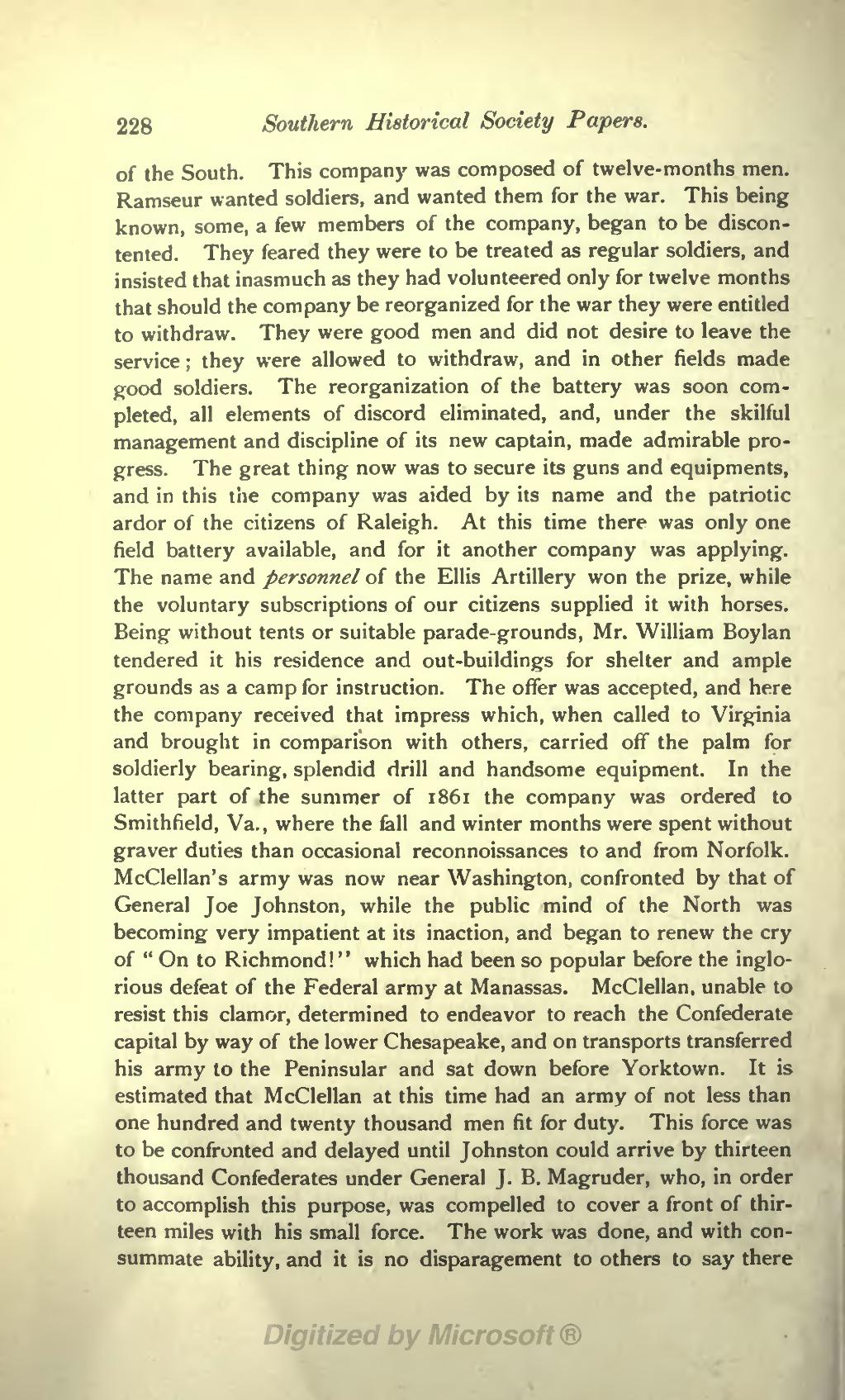228 Southern Historical Society Papers.
of the South. This company was composed of twelve-months men. Ramseur wanted soldiers, and wanted them for the war. This being known, some, a few members of the company, began to be discon- tented. They feared they were to be treated as regular soldiers, and insisted that inasmuch as they had volunteered only for twelve months that should the company be reorganized for the war they were entitled to withdraw. They were good men and did not desire to leave the service ; they were allowed to withdraw, and in other fields made good soldiers. The reorganization of the battery was soon com- pleted, all elements of discord eliminated, and, under the skilful management and discipline of its new captain, made admirable pro- gress. The great thing now was to secure its guns and equipments, and in this the company was aided by its name and the patriotic ardor of the citizens of Raleigh. At this time there was only one field battery available, and for it another company was applying. The name and personnel of the Ellis Artillery won the prize, while the voluntary subscriptions of our citizens supplied it with horses. Being without tents or suitable parade-grounds, Mr. William Boylan tendered it his residence and out-buildings for shelter and ample grounds as a camp for instruction. The offer was accepted, and here the company received that impress which, when called to Virginia and brought in comparison with others, carried off the palm for soldierly bearing, splendid drill and handsome equipment. In the latter part of the summer of 1861 the company was ordered to Smithfield, Va., where the fall and winter months were spent without graver duties than occasional reconnoissances to and from Norfolk. McClellan's army was now near Washington, confronted by that of General Joe Johnston, while the public mind of the North was becoming very impatient at its inaction, and began to renew the cry of " On to Richmond! " which had been so popular before the inglo- rious defeat of the Federal army at Manassas. McClellan, unable to resist this clamor, determined to endeavor to reach the Confederate capital by way of the lower Chesapeake, and on transports transferred his army to the Peninsular and sat down before Yorktown. It is estimated that McClellan at this time had an army of not less than one hundred and twenty thousand men fit for duty. This force was to be confronted and delayed until Johnston could arrive by thirteen thousand Confederates under General J. B. Magruder, who, in order to accomplish this purpose, was compelled to cover a front of thir- teen miles with his small force. The work was done, and with con- summate ability, and it is no disparagement to others to say there
